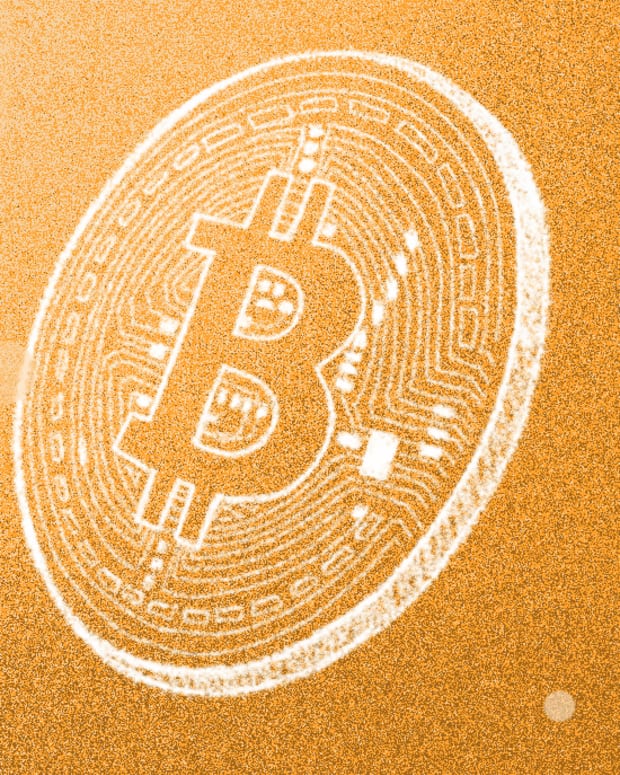Artist
- Karo Zagorus
Name
- Karo Zagorus
For Block007 we’re proud to feature Karo Zagorus’ much awaited new book “Bitcoin & The Trust Problem” expected to release on Amazon in June. It examines a question at the very heart of this movement – the loss of trust in governments and institutions. The book’s based on Karo’s Masters Thesis and has some phemonemal cover art courtesy of @BitkoYinowsky who nailed the concept from the very first sketches he sent Karo – a picture paints a thousand words. Karo writes regularly for Citadel21.com and has also been published in Bitcoin Magazine. @Maxbitbuybit and Karo hashed out a great podcast rip, delving into the book, its story, Hungary and the hot mess that is 2021.
"My generation is really struggling financially. Young people understand digital value & are adapting to it. Those buying Bitcoin are going to survive this, they’ll be the lucky ones."
ARTICLES FROM KARO ZAGORUS
#01
TRUST, THAT WE NEED MORE OF
#03
REPUTATION : THE BITCOINER’S MINEFIELD
FOLLOW THE WHITE RABBIT
Karo started his rabbit hole journey back in 2017 whilst at University, he initially speculated on shitcoins as a way to escape his situation in Hungary at the time. He sees Hungary is a Russian-style oligarchy that constantly exploits its population to further itself. Seeing how value was being created out of nowhere in the crypto markets was an intoxicating escape and drove him to understand what was underpinning this explosive NGU phenomenon.
"The fiat system is one in which you have to run on a treadmill every day – there’s no end of it!"
The Bitcoin only thing started clicking for Karo in late 2018 as he delved deeper down the rabbit hole, into Economics and the Philosophy of money itself. He started thinking about what money is, how it comes about, what do we do with it and how society is intertwined with it. The way government manipulated money through inflation seemed a clear perversion of money’s natural function and utility. This derangement started around WWI and with the founding of the Federal Reserve and has continued unabated since.
MASTERS THESIS : BITCOIN
He started thinking about what’s wrong with society. Why Bitcoin exists & whether it could succeed. His focus is why and how banks ruin people’s lives. How the monetary system is pitted against us. Why politics lets us down and the media lies to us. And how it all comes together around Satoshi’s solution of aligned incentives through Bitcoin.
Remarkably he managed to formally integrate this enquiry into his Masters Thesis after discovering a Professor who proved a key ally. Not everyone at his Hungarian University was quite as open minded – one of the Anthropology lecturers kept insisting he was sure to fail, that synthesising these ideas was overly ambitious. Perhaps this was the very push he needed to make it over the line.
SATOSHI’S SALVATION
Satoshi appears to have had incredible insight into socio-economic inequality and the breakdown of trust in governments, corporations and institutions. Rather than following the Cantillon Effect ‘money trail’, people have been misdirected to look for reasons, blame and answers in the wrong places. We’ve been coerced into arguing and competing with each other by populist media and politics. The enlightened perspective however, is that where we’re from, our gender, race, background or religion is irrelevant. Most people just want to develop themselves and their community, raise a family and educate their children. Fundamentally, we’ve so much more in common than we have to fight about.
"It’s not enough to buy bitcoin & leave it on a KYC exchange. That’s not participating in the values of this system. You have to understand what Bitcoin represents."
As government’s money printers around the world goes brrrrr, the consequent inflation is evaporating the value of our money. People are incentivised to spend rather than save as they see their purchasing power diminish. They overuse easy credit with an urgency and irresponsibility, with little regard or responsibility for the future. We’ve ended up in a ‘high time preference’, fragmented, broken society. In this confusion, people are embracing Bitcoin out of both economic necessity and the quest for some kind of universal truth. At its essence, Bitcoin is a honest ledger and truth machine – Satoshi’s salvation.
POWER TO THE PLEBS
Karo’s in awe of the emergent, self-organising, social behaviour of Pleb Culture – nobodies coalescing into groups around shared interests and initiatives. He sees it as a hugely positive, progessive evolution of Bitcoin’s social capital. Pleb groups will be empowered to take risks and have the means and capital to succeed.
"Government will kill itself and Bitcoiners will be the ones reforming and rebuilding the world as they envision it. "
Article by @SelfBankt
INTRODUCTION TO THE DISSOLUTION OF TRUST
Ever since the beginning of time, trust was and is still a necessary element for human progress. In a world of survival and beyond it was the essential tool to provide humans with friendships and alliances. Without trust, many elements of our modern-day society would not function, services provided to us would cease to work and to exist. Kings would have not ruled over lands and anarchy would have gone rampant in the whole world where everyone, is to themselves and nobody else can be trusted. Without this being possible, we would have not seen such human development across the two millennia. (Fukuyama)
Group formation’s essential element is trust, this is how people with common interest were able to group together to survive, to build families and empires. For one man to go beyond the creed of the family and form relationships, trust was imperative to establish these connections (Fukuyama).
Our ability to form trust is an essential human trait that enables us to establish relationships with entities and other human beings. Often this is difficult because trust is not a very morphable human trait, but something that is built or earned over time; although we can trust also blindly if situation is given. This inherent ability to trust, has cultural, religious, and political roots. Depending on the individual, where one is born, decides what will be the inherent cultural programming of the characteristics of this ability to trust (Fukuyama).
In today’s world, trust governs many layers of society, (Fukuyama) for example when we chose political parties, we can either vote under personal principles or by beliefs, onto candidates who, we trust or trust to a certain degree that they will be more effective at governing a country, and will not impede on our trust and support by embezzling funds, impede our rights and freedoms and turn a democracy into an oligarchy. When we call the Ambulance, Police or the Fire Service we believe and trust that they will respond and provide help in the time of need because they serve society independently that of its affiliation and citizenship, humans in need will be provided help in a functional country with a functional public emergency services system. We believe that the medics in the ambulance will be well trained, that the police will be impartial and not ask for bribes, and that the fire fighters will risk their lives to save those who are in imminent danger. We trust that agents of security services of our nation work tirelessly to avert dangers, prevent terrorism, and disrupt most forms of espionage without impeding on the rights, liberties, and privacy of its citizens.
When we put money into a bank, we trust the institution, that it will be responsibly managing our money and not spend it, not lend it out recklessly, not charge us exorbitant fees and embezzle our money through questionable investments and loans. We expect contracts to function as is written, that attempts to bridge trust especially in low-trust cultures, like when we sign up for a Mobile Service, Health Insurance or Car Insurance, we expect and trust that the service provider will not breach that contract and charge us extortionate charges or fail to pay us if we file for an insurance claim. We also trust that a central bank will maintain a healthy monetary policy. That it will not go rampant with its ability to print out countless amounts of fiat money, with that over inflate the currency that we use, that it will keep our economic interests at the forefront to keep the country competitive and that the money it creates wield value and others will accept that form of value as a monetary unit of account. We can also trust blindly others, like neighbors, that they are not going to attempt to breach into our house and/or threaten our lives.
We expect that our legal system will work and function as normal, under the guides of the constitution and present laws, protecting society from harms, mediating conflicts, and enforcing contracts. When we go into a supermarket, we expect that the food products sold there are safe and won’t damage our health or worse, and that other products are safe, we trust that the consumer safety governmental organizations will provide necessary guidelines to create this safety net that we can rely on, that will prevent others from selling poisonous food or electronical equipment’s that are defective, that can fire hazard or cause cancer. Trust is also necessary for economic progress and for the creation of prosperity. (Fukuyama) Functional economies in the modern world require the formation of businesses and their expansion to create progress and this can only be accomplished with the accumulation of wealth. (Fukuyama) The money everyone makes and earns today is also based on trust; its subjective value is based on nation states that give fiat currencies value through exercised enforcement of value through the means of National Monetarism. (Ammous) Often people don’t consider money such an important matter, but as it is, it seems we are undervaluing its importance to society, (Ammous) because without any form of currency or unit of account we would have not had a formation of any country, (at least initially). (Ammous) soldiers would not serve their kings if they did not receive a form of reward that was of value. These in the early days were usually in the forms of dowry or a valuable animal that they could use for husbandry and later as transition happened towards gold and other units of account made it possible to better store value over time, this created prosperity and allowed empires to rise or fall. (Ammous; Fukuyama)
Small family businesses are also trust based, the father, mother or son also works at the company, but as the company keeps prospering and producing goods, making more money it becomes necessary for it to keep expanding to maintain its own competitiveness which essentially requires members of the family to start devolving this trust and decentralizing it. (Fukuyama) The ability to incorporate was a turning point that allowed families to turn from sole owners into shareholders. When small family businesses turn into megacorporation, they essentially become extremely hard to manage alone and this is where it becomes difficult in certain cultures to trust others with the leadership of a company that they created and lead for years. Therefore, trained management became necessity to consider and hire. (Fukuyama)
Large companies like Apple, Mitsubishi, Samsung, Sony have all went through these phases and still exist as of today because their transformation into international organizations was made possible by the decentralization of trust while still making it possible for shareholders to maintain oversight over the operation of the companies. If competitiveness would have not prompted the families (those who operated small and medium sized businesses) to incorporate their business, there would be no possibility for the creation of prosperity. If Steve Jobs would have not partner with others when it became necessary to come out of the garage, we would not have fancy electronics such as like the Apple iMac Computers and iOS Phones and Tablets. If Bill Gates would have not formed Microsoft back in the day, we would probably use something different than Windows. If Larry Page and Sergey Brin would have not trusted each other, we would not have Google the Search Engine, nor any Android smart phones. (Fukuyama)
In a normally functioning society, we expect these to function properly, which serve as the basis of our lives, our country, and its economy and that of the world’s.
When we start facing problems regarding our trust in others, when others step past our trust’s boundaries, when they impede on that or abuse it, then we start facing problems and begin to distrust others. Distrust makes it much harder to establish trust in others. (Edelman; Fukuyama) If our trust is abused, chances that it will get permanently damaged and distrust will inhibit the formation of trust. It will make it difficult for example to trust politicians if they often become corrupt, it will be difficult to choose new candidates and chances that people will not go to vote any longer due to their distrust of the system. (Edelman)
We will distrust the police more if they are abusing their authority. We will distrust banks if they are misusing our deposits or fail to be held accountable. (Fukuyama) Central Banks can also betray our trust by overinflating our currencies to create more immediate value for themselves and steal from its citizens throughout inflation. Similarly like in the case of Venezuela, where the value of the Venezuelan Bolivar has gone through a hyperinflation and because of that Venezuelans must barter every day or use US Dollar notes to buy goods and to access services. (Ammous) This ability of central banks to inflate the monetary supply has made it possible to wage unlimited warfare and also apparently served as the cause of both World Wars. (Ammous) After World War I, Austria faced a hyperinflation because it has begun printing out more money than the gold reserves that were available to backing its currency and therefore the Austrian Crowns have lost a tremendous amount of value because of the reckless printing of money. (Ammous) Germany after World War I also have attempted to pay back its reparations using inflation, they printed out unlimited amounts of Deutschmarks to finance their debt but instead it has led to the collapse of their economy during the Great Depression. (Ammous) Previously, wars before Monetary Nationalism required rulers to tax subjects to fund wars, and these were limited in scale and size. (Ammous)
As of today, it is apparent that we are living through the crisis of trust. Until recently there been no ways to eliminate the abuse of trust. This abuse of trust seems to endanger the networking of human beings, which is required to promote progress which in turn allows the creation of shared prosperity in society. (Fukuyama; Nakamoto, Bitcoin: A Peer-to-Peer Electronic Cash System) And this long standing vacancy for alternatives made it possible for others to abuse this trust, repeatedly, especially within the United States’ banking industry. (Servon)
The 2008 Global Financial Crisis has also accelerated this problem. Today we are facing an increasing trust problem, the erosion of trust or possibly the establishment of distrust, as shown in the Edelman Trust Barometer. It shows that trust is on the decline globally, at unprecedented scale as never seen before. (Edelman)
In this Thesis, I am set out on the journey of examining this problem that we are facing today, by looking at core institutions of our society and examining them and seeking out why they are not working as how we are expecting them to work.
We are going to explore pressing matters that affect our daily lives and continue to challenge our world views. Events that have played a pivotal role in creating the hypothetical destruction of trust within society. (Edelman) We will look at certain possible causes of this dissolution, we will examine and contrast American events to Hungarian and other ones and attempt to correlate them to the given problem.
The research methodology will consist of examining empirical evidence of the mentioned effects and processes. Later with this we will weight their importance and see how they are contributing as a main driving force towards the adoption of the potential solution. (Nakamoto, Bitcoin: A Peer-to-Peer Electronic Cash System) By examining historical events and currently ongoing issues, we will see how trust is put to a test in today’s world. Only by this we will be able to figure out what is truly going on (Andersch; Pritzker; Prentice and Clown; Huebner; Ammous; Adler) and it will allow us to better understand why people do what they actually do to bridge or solve this problem permanently.



